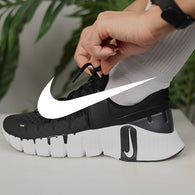
From causing the 4pm afternoon slump, brain fog to exacerbating poor energy levels dehydration goes way beyond a dry mouth or even feeling thirsty. Infact, did you know that by the time you are thirsty you are already mildly dehydrated. Here are five signs that you are not hydrating well enough.
You have hard time remembering things or concentrating
The average adult body is more water than anything else (about 60%). Your brain is about 70 -80% water. Brain cells need a delicate balance between water and various nutrients to operate and when the balance is disrupted your brain cells lose efficiency.
It’s therefore not to surprising that when you don’t have enough water on board your brain is not able to function optimally. There is a lot of research which shows that when we are parched, we have more difficulty keeping our attention focused. Dehydration can impair short-term memory and the recall of long-term memory too. The ability to perform mental arithmetic or to think critically is also affected when fluids on board are low.
4 pm slump anyone?
Dehydration caused your body to conserve energy by decreasing blood circulation. In addition, when you feel thirsty, you’ve already lost 2-3 percent of your body fluid. As your blood volume lowers, you don’t as much blood to your brain and around your body which caused you to become fatigued.
Another reason you feel tired is that as every chemical reaction that happens in your body requires a water medium with less water on board you are not able to optimally perform the metabolic functions that produce energy from the food you eat.
You will feel hungrier
This is due to the fact that a good water intake helps regulate your appetite and can increase satiety. In a recent study, dieters who drank 500ml of water half an hour before meals lost almost twice as much as weight as those who didn’t over a 12-week period.
The thinking behind this is that drinking water before a meal makes you feel fuller so as a result you eat less at your meal. In addition, when you don’t drink enough day to day your energy levels dip and you feel tired. When you feel tired, your body starts to confuse thirst with a need to eat to boost your energy levels.
Your bowels aren’t as regular
Fluid helps move nutrients and waste through your body. Constipation is a common problem that is linked to a poor fluid intake. In fact, evidence recommends that increasing water intake is part of the treatment protocol. Low water consumption appears to be risk factor for constipation particularly in both you and elderly individuals.
You’re training sessions suffer
Your muscles are about 70 – 80% water so it’s not surprising that not being optimally hydrated makes exercising hard work. Dehydration can lead to altered body temperature control, increased fatigue, reduced motivation therefore making exercise feel so much harder both physically and mentally.
Not only will you run slower or lift lighter but as dehydration affects mental performance as well your concentration, decision making and reaction time is also negatively affected. Your risk of muscle cramping injury is also higher when you are dehydrated.
Tips for staying well hydrated
-
Reach for your water bottle
Granted the amount of water that a person needs every day is different. However, as a guide drink 1.5 to 2L of water a day. If you’re active, or its hotter or you are a heavier sweater you will need more! Make it a habit.
-
Spice up your water
If you need to make your water more interesting to encourage you to drink more add pieces of fresh fruit. Lemon, oranges, mint or cucumber works a dream.
-
Get in there early
Try and drink the majority of your fluid intake earlier on in the day to prevent night time trips to the loo.
-
Check your urine
Apart from the first parting of the day, when you are well hydrated your urine should be a pale straw colour. If its darker than that, you need to drink some water. Exception is if you are taking B vitamins as this colours your urine making it a brighter yellow.
References: Available on request





























































